Last year, the celebrated American film maker David Lynch expressed the view that “television is way more interesting than cinema now… it seems art house has gone to cable”. Just last week it was announced that Lynch, the one-time prince of the art house, is heading the same way.
He and Mark Frost are to reprise their hit 1990 TV series Twin Peaks for the cable company Showtime. Almost a quarter of a century ago, Lynch effectively told television viewers to wake up and smell the “damn fine coffee”.
When Twin Peaks first aired, American TV was a creative wasteland where only the most unbending formats thrived. No one was quite sure what to make of this new series about the killing of a teenage girl in a small northwestern community. Was it a soap opera, a whodunnit or a supernatural thriller?
In fact, it was a surreal mixture of them all, at once as familiar as cherry pie and as unsettling as a bad dream. More than that, it was appointment television that, out of nowhere, radically expanded the possibilities of the small screen.
In the intervening years, American television has grown much bolder and more ambitious, creating such powerful and complex series as The Sopranos and The Wire, while Lynch has slipped back into the experimental margins from which he emerged.
But Lynch left his mark. Series such as the recent True Detective positively hum with Lynchian foreboding and without his distinctive take on the everyday macabre, it’s hard to imagine that Six Feet Under would have been made. Nor, perhaps, an open-ended mystery such as Lost, although we shouldn’t hold that against him.
So the return to TV seems like poetic justice. Not just because Lynch did so much to revive a moribund medium, but also because first time round control was wrested from his grasp and, like countless other film-makers before him, he fell victim to the pressures and machinations of network television.
The original two series focused on the murder of Laura Palmer in the fictional Washington town of Twin Peaks. The investigation was led by special agent Dale Cooper (Kyle MacLachlan) who had a thing for a “damn fine cup of coffee”. At first, it was utterly beguiling and then a little infuriating, at which point ABC insisted that the identity of the murderer be revealed half way through the second series.
As a result, the show stumbled unhappily and increasingly unwatched towards cancellation. This time round things will be different. There are only nine episodes, written by Frost and Lynch, set in the present day, and Lynch will direct all of them, which are due to be broadcast in 2016. There is also a promise from Showtime that outstanding questions from over 20 years ago will finally be answered.
This isn’t the first time a Lynch TV comeback has been mooted. Apart from three short-lived shows he developed with Frost in the early 90s, at the turn of the century Lynch also got the go-ahead to make a pilot for a TV drama about the murkier side of Hollywood entitled Mulholland Drive.
But he fell out with the network – ABC again – and the pilot was made into a feature film with Naomi Watts. Although critically well received, it was sufficiently indifferent to conventions such as linear narrative and character motivation to explain ABC’s reticence. Looking back on that experience raises the question of just how weird the new Twin Peaks might be.
That’s the thing about Lynch: he is one of the few longstanding auteurs who is impossible to second guess. There is no more rhyme or reason in his career than there is in his most surreal works.
A psychologist would doubtless attribute the unpredictability to the peripatetic childhood he led. The child of a research scientist with the US Department of Agriculture, Lynch moved all over little-town America with his family. What he seemed to retain from his travels was something solidly American, the sort of simple, down-home attitudes that led him at one time to admire Ronald Reagan.
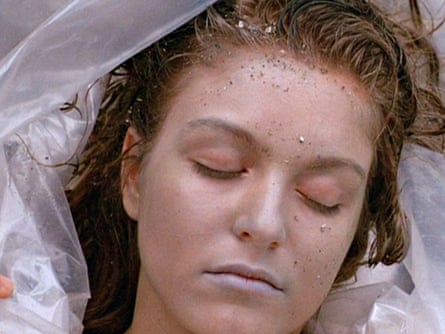
By his own account, he made friends easily and was filled with wonder by the environments he encountered. “I found the world completely and totally fantastic,” he later recalled, though he found school “a crime against young people”. Yet he was hardly a born rebel; he was in the scouts until he was 15.
He dropped out of art school in Boston with the intention of moving to Europe for three years. He returned to America after two weeks.
Even at this stage elements of his character that would later inform his work can be readily identified. There is the almost naive sense of awe allied to disjointed and thwarted ambitions. It’s this unlikely mix of the unworldly and the bohemian that have been at the centre of his vision. All that was missing was the dark underbelly that would become a recurring motif in his films. And he found that in Philadelphia.
Enrolled at the Pennsylvania Academy of Fine Art, he lived in a crime-ridden area called Fairmount with his newly acquired wife – fellow student Peggy Reavey – and their baby daughter, Jennifer. Lynch later described a mental condition of intense fear that ran riot in a neighbourhood in which people were shot, his house was attacked and twice burgled and his car stolen. “There was violence and hate and filth,” he said. “But the biggest influence in my whole life was that city.” It was in Philadelphia that he made his first short films that featured scenes of vomiting, blood and crying babies. But it was his move to Los Angeles in 1971 that provided the means of making his first feature film.
He studied film-making at the AFI Conservatory and set about filming in black and white a story about a young man in a bleak industrial city whose girlfriend gives birth to an inhuman-looking baby. Eraserhead was one of the most original and discomfiting debuts in American cinema. It went on to become a massive cult hit at late-night cinema and marked the beginning of an oeuvre as baffling as it is inspired.
His two most conventional films followed: The Elephant Man, with John Hurt as John Merrick, the Victorian freak show attraction, and Dune, an adaptation of Frank Herbert’s sci-fi novel. The first was a huge hit, the second an even larger disaster.
But perhaps not as large as what might have had occurred had Lynch taken up George Lucas’s offer to direct the third Star Wars instalment, Return of the Jedi – a prospect so improbable that it practically confirms the existence of a parallel universe..
It was his fourth film that stands as his masterpiece. Released in 1986, Blue Velvet brought together Lynch’s perception of suburban innocence and the dark menace that lies beyond in an exhilarating exploration of sexual obsession. The film also marked Dennis Hopper’s official comeback. He played the foul-mouthed Frank Booth, the very incarnation of pitiless violence.
Lynch’s direction of Hopper in the use of the F-word reveals his quaintly delicate sensibility. Hopper once recalled: “David never said that word. He would just say: ‘Please say that word there.’ He seemed able to write ‘fuck’ but not say it.”
With its visual richness and haunting soundtrack, the film seemed to penetrate right to the heart of the collective subconscious, though for some feminist critics it was simply an old tale of misogyny dressed up in new velvet clothes.
By then, Lynch was on his second marriage, which didn’t survive his affair with the star of the film, Isabella Rossellini. He went on to cast her in Wild at Heart, but the couple split in 1991. Since then he has married twice more, the second time to his current wife, the actress Emily Stofle.
Many of the themes in Blue Velvet prefigured Twin Peaks, not least the unnerving sense that evil lurks just out of view. The question is: will the man whom Mel Brooks once called “Jimmy Stewart from Mars” be able to recreate that almost wholesomely disquieting atmosphere?
He’ll be 69 next year when filming gets under way. Has he lost his touch or can he still peel back the surface of America as if it were a ring-pull lid? Like Dale Cooper, we have no idea where Lynch will lead us. Let’s hope, to quote the special agent, it will be a place both wonderful and strange.
THE LYNCH FILE
Born David Keith Lynch, 20 January 1946 in Missoula, Montana, to Donald, an agricultural research scientist, and Edwina, an English language tutor. The family moved around America throughout Lynch’s childhood.
Best of times Although his debut, Eraserhead, was a big cult success, mainstream recognition arrived with The Elephant Man, which garnered eight Oscar nominations, including two for Lynch: best director and best adapted screenplay.
Worst of times The debacle that was Dune was a setback, as was the cancellation of the original Twin Peaks. But the last decade has been his leanest time as a film-maker, a period in which he has often spoken of a lack of inspiration.
What he says “I can’t live without coffee, transcendental meditation, American Spirit cigarettes, a freedom to create ideas that flow and my sweet wife, Emily.”
What others say “He can be very soulful and poetic. It is not all darkness and confusion.” Mary Sweeney, his third wife, whom he married and divorced in 2006.
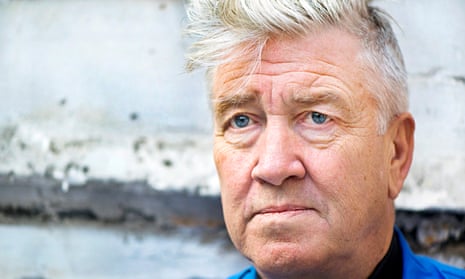
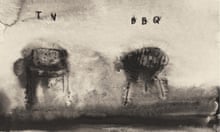


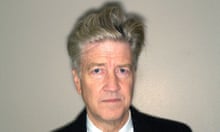
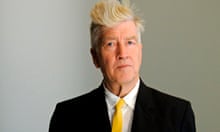
Comments (…)
Sign in or create your Guardian account to join the discussion